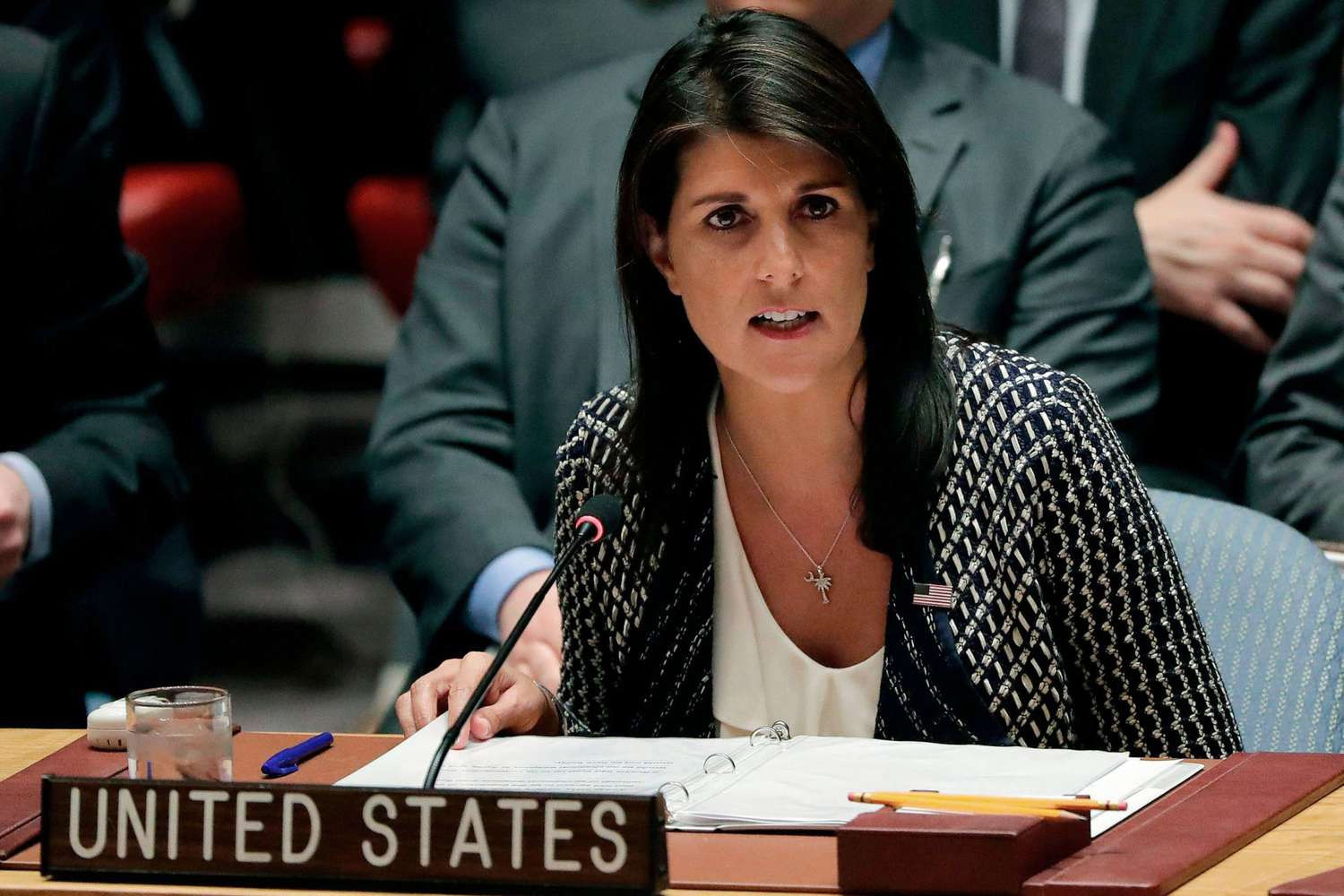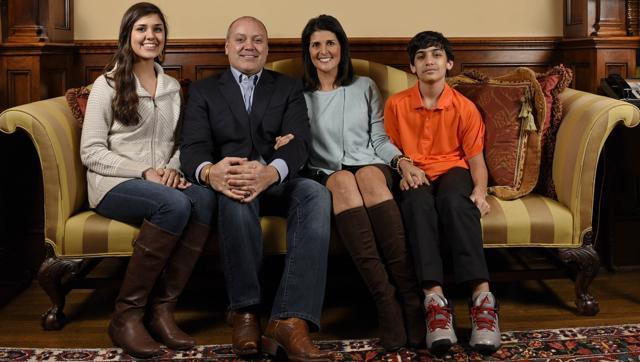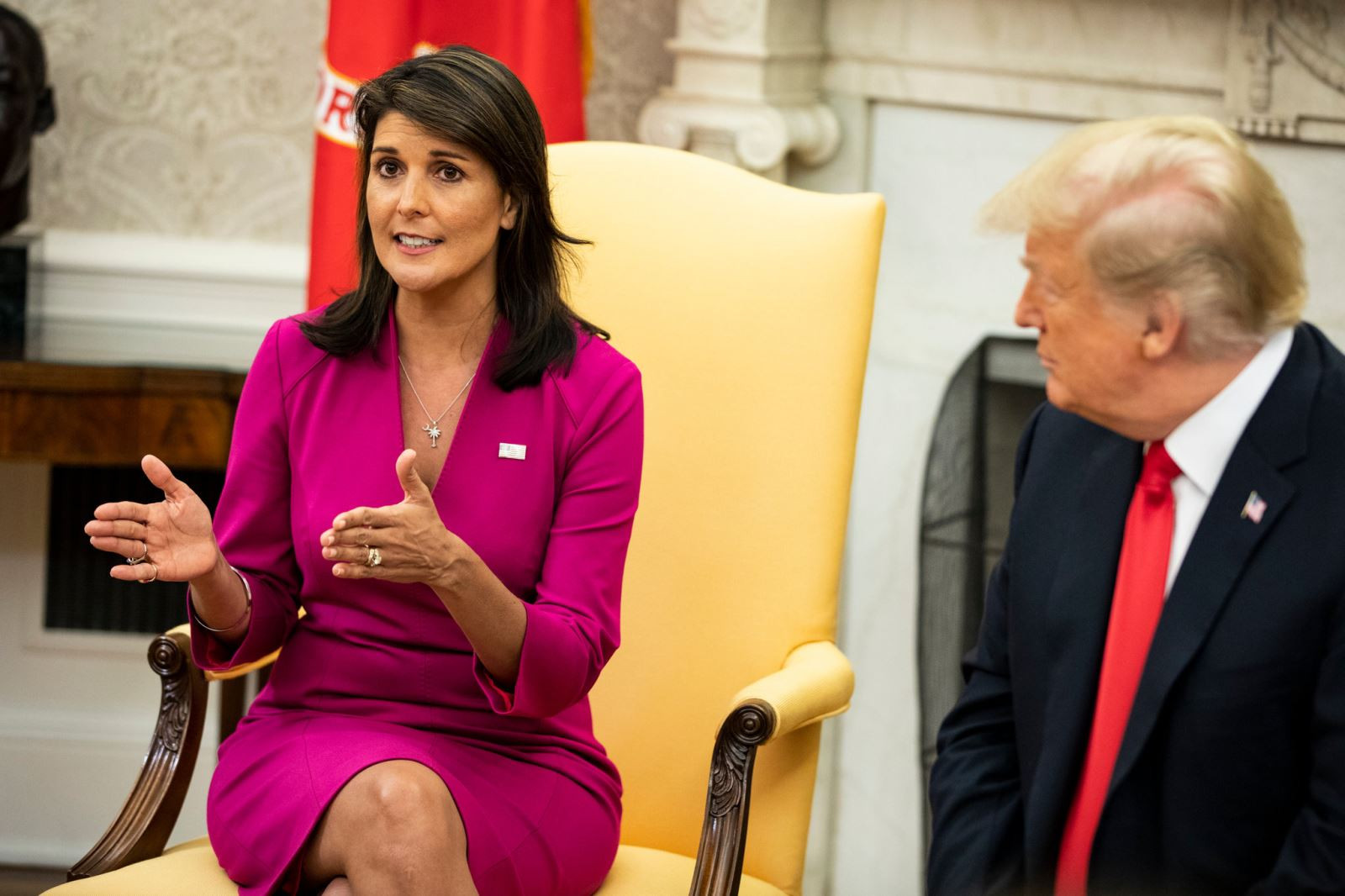With "Iron Lady" Margaret Thatcher as her idol, former ambassador to the United Nations Nikki Harley is pursuing the goal of becoming the first female President in US history.

In April 2021, Nikki Haley announced that she would not run for president in the 2024 election if Donald Trump entered the race. However, just over a month before the primary race begins, the former US ambassador to the United Nations and former governor of South Carolina is emerging as a serious contender for the Republican nomination.
Born in the US to Indian parents, Haley is a politician inspired by the British “Iron Lady” Margaret Thatcher and possesses extensive international experience and exceptional management skills. Now, she is emerging as a formidable opponent to former President Trump without any scandal or animosity. Ms. Haley has also attracted the support of influential donors who see her as the Republican candidate with the best chance of defeating Democratic rival Joe Biden.
Nimrata Nikki Randhawa was born in 1972 in Bamberg, South Carolina. She took her husband’s last name when she married Michael Haley in 1996. The couple has two grown children. Nikki Haley’s parents are Sikh immigrants from Amritsar, Punjab, India. They were the only Indian family in a small southern town of 2,500 people and two traffic lights. Growing up in Bamberg, Haley said she often felt like “the brown girl in a black and white world.” Even the smallest mistake Haley made would be reported to her family.

Haley studied accounting at Clemson University but quickly turned her attention to public affairs. She was elected to the state legislature in 2004, re-elected unopposed in 2006, and won again with 83 percent of the vote in 2008. Two years later, she became the youngest governor in the country at the age of 38. Haley was the first female governor of South Carolina and the third non-white person elected to a Southern state. She won a second term as governor four years later.
As governor, she took decisive action to remove the Confederate battle flag from the state Capitol after a white segregationist killed nine black people at the Emanuel African Methodist Episcopal Church in Charleston. Drawing on her own childhood experiences, Haley has been active in fighting racism and promoting inclusion. In the 2016 presidential primary, she supported Marco Rubio and publicly criticized Trump. Haley made peace with Donald Trump after he won, but she has now become a formidable opponent.
When Trump asked Haley to be his ambassador to the United Nations, she laid out her terms. She insisted on a cabinet position that would give her direct access to the president, as well as a seat on the National Security Council. When the White House suggested she was embarrassed after announcing sanctions against Russia, Haley responded bluntly: “With all due respect, I am not embarrassed.”
Haley’s book about the women she admires highlights that trait in a chapter dedicated to Jean Kirkpatrick, the first female U.S. ambassador to the United Nations. The woman Haley admires most is Margaret Thatcher, the former British prime minister who represented the Conservative Party from 1979 to 1990. The book’s title, “If You Want Something Done,” borrows from Thatcher’s famous quote: “If you want something said, ask a man; if you want something done, ask a woman.” Haley used the phrase to great effect at the first Republican debate in Milwaukee on Aug. 23.

Nikki Haley’s current status as a moderate centrist is evidence of a shift to the right within the Republican Party. Her rational, restrained rhetoric stands in stark contrast to opponents who vehemently deny the reality of climate change, promote conspiracy theories, and often use homophobic vitriol.
Ms. Haley shines most in the foreign policy arena, where she firmly defends tough positions, is highly aware of America's global leadership role and the threats from China and Russia.
But while Haley has taken center stage in the most recent debate, she has also faced accusations of influence peddling and using her government experience for personal gain. While governor, she gave generous incentives to Boeing to invest in South Carolina, then joined the company’s board after leaving office. She has also used her experience as a United Nations ambassador to secure high-profile speaking engagements.
A conservative politician and former accountant, Haley supports fiscal discipline and reform, as well as cuts to Social Security and health care. Although she opposes abortion, she does not support criminalizing abortion. Haley has also criticized some factions of radical feminism for their open hostility toward men.
As a trailblazer, Haley has broken many barriers. Polls indicate that she will easily defeat Joe Biden in the presidential election, but she will first have to overcome a large gap with Donald Trump to win the Republican nomination.
The road won’t be easy, but Harley is determined to follow in Margaret Thatcher’s footsteps. If elected, Nikki Haley would become the first female president of the United States, taking office on January 20, 2025 – her 52nd birthday.
According to Tin Tuc newspaper